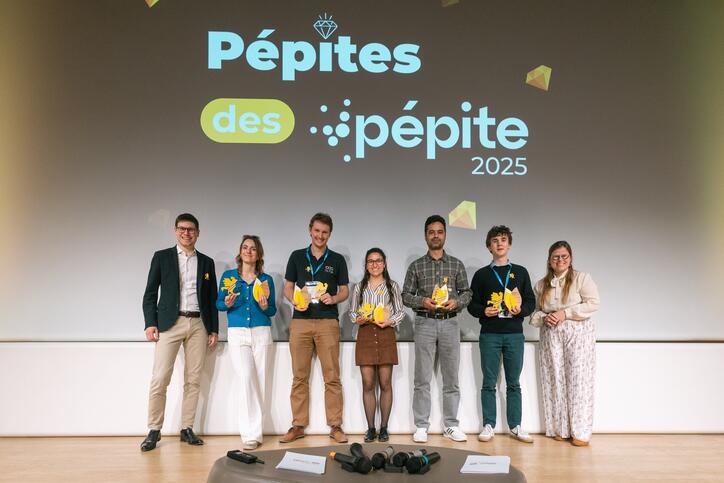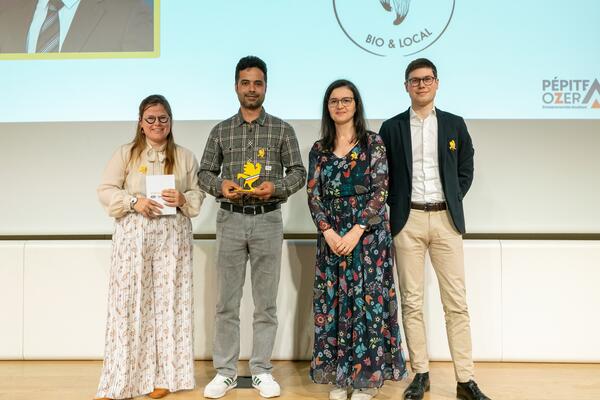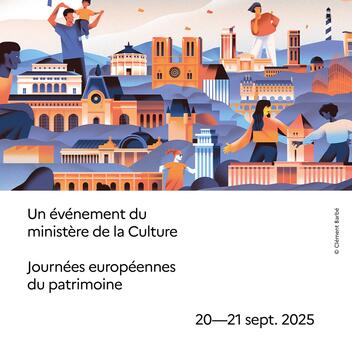
“Pépites des PEPITE” challenge: an alumni in the five laureates
April 3rd saw the finale of the “Pépites des PEPITE” challenge held in the headquarters of the L’Oréal Group. Since 2018, this challenge highlights the originality and diversity of students’ and business managers’ careers. Ten “heart projects” out of 158 applicants were chosen for the finale, of which five laureates stood out. Finalists include an alumni, Hamidreza Sailani, a student of Iranian origin who pursued his higher studies in France, where he created his company.
PEPITE is a network created by the French ministry of higher education including student Centres for Innovation, Transfer and Entrepreneurship (“Pôles étudiants pour l’innovation, le transfert et l’entrepreneuriat”, a.k.a. PEPITE), which aim is to support students with the national status of entrepreneur-student. PEPITEs are present all over France to strengthen entrepreneurship culture in higher education by supporting business creation projects of students or young graduates.
Hamidreza Sailani, an alumni among five laureates
Since 2018, the “Pépites des PEPITE” challenge highlights the most original projects of the PEPITE system. Since its creation, the challenge has shed the light on 60 entrepreneurship projects, which makes “as many stories of dedication, creativity and impact”. With this challenge, the network shows a critical notion: “the entrepreneurship journey doesn’t stop at the end of the national status of entrepreneur-student, it continues, changes, develops and deserves to be celebrated”. Organisers stressed that in 2025, the spotlights focused “on the impact, whether social, environmental or cultural, together with three additional major criteria: innovation, deployment and entrepreneurship career”.
These criteria led to the selection of five champions this year. Among them is an alumni of Iranian origin, Hamidreza Sailani, a graduate in agronomic engineering who first studied in Iran (Shahid Bahonar University of Kerman), then at the University of Grenoble-Alpes in a BEE Master’s course (Biodiversity, Ecology, Evolution), a course training high-level executives in ecology. After completing his Master’s degree, Hamidreza Sailani also studied at the Grenoble IAE - INP management school.
The project that won him the award, Champiloop, aims to transform abandoned or unoccupied urban sites into circular mushroom farms, using agricultural by-products to grow organic mushrooms, which are sold in a short circuit. A “local and circular approach, at the crossroads of urban agriculture and ecology” that forms a “local and virtuous agro-ecological project”, according to PEPITE France.

Winners rewarded for their desire to change the world
Among the “five awesome winners”, in the words of the network, are four other finalists who have also been rewarded “not just for an idea or a product”, but also for “a journey, a commitment, a desire to change the world”. These are:
- Léo-Paul Briatte, who won for his Stelneo project, which develops “reusable packaging incorporating inflatable cushioning”. This innovation is designed to replace single-use cardboard boxes and “materially reduce the logistical footprint”. According to the competition jury, the solution was judged to be “ecological, economical and technically advanced”;
- Simon Buoro for ILYA, a company from Toulouse designing “concrete solutions to reduce water and energy consumption in the shower, while keeping a high level of comfort” ! And this process illustrates “a clear commitment: to build a more sustainable future”, but “with no restraint”;
- Amandine Lancelot for DNTech, a project developing “a quick kit for the detection of pathogen bacteria in agrifood industry” to improve food security and streamline quality controls. A project with “strong industrial and social potential”, according to the jury;
- Ophélie Vanbremeersch for the ZAC project, which “gives a second life to spectacle frames” by collecting, reconditioning and reselling them at reduced prices! A model that combines “quality, economy and commitment”, with a dual ecological and social impact.
Related contents
Recommended News




















































